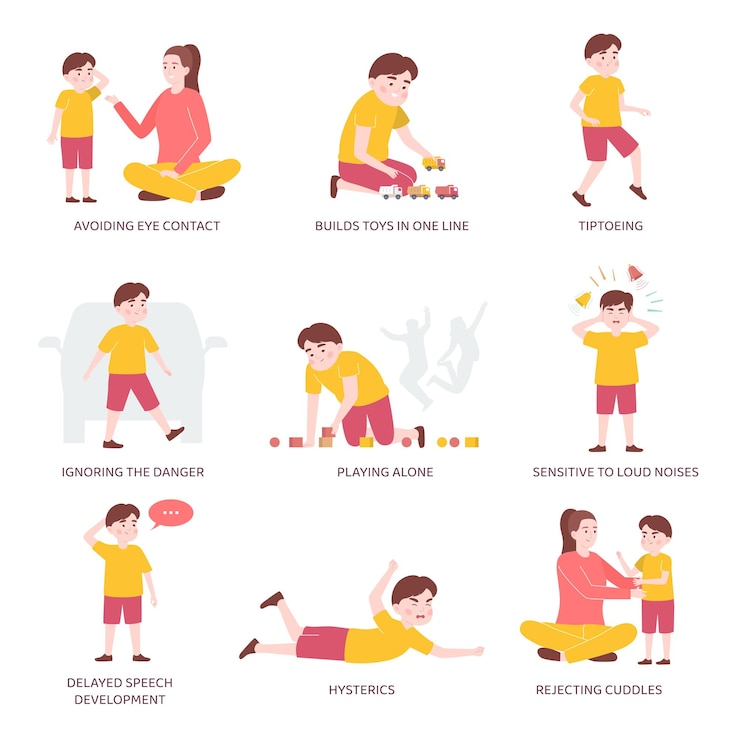
Understanding toddler discipline becomes much simpler when you grasp the social and emotional growth that drives those challenging behaviors.
### Table of Contents
**”Mama, can we get some fruit snacks? Pweeeeeeese?”**
Last week, while grocery shopping with my 3-year-old, we bumped into a close family friend we hadn’t seen in ages. Happy to see her, I rushed over for a warm hug.
Just as we exchanged greetings, I anticipated what was coming next, having dealt with toddler discipline all morning. Being the kind person she is, she greeted my 3-year-old son, who was busy munching on a granola bar, with a cheerful, “Hey there, buddy! How are you?”
Predictably, he responded with a fierce scowl, teeth bared and a growl for good measure. Raising a toddler is fun, right?
I expected this reaction akin to a rabid raccoon because it was one of those days. One of those days when our normally sweet and calm 3-year-old wakes up cranky, impulsive, and overly emotional.
His impulsive reaction to my friend stirred up my own feelings, causing a rush of embarrassment and frustration. A few years back, these emotions, along with societal expectations, would have heavily influenced how I handled disciplining him in such situations.
– He can’t be rude to others!
– How could he embarrass me in front of someone I respect?
– Great, now she’ll think I’m a terrible parent.
Being honest, our approach to toddler discipline often stems from our own emotional reactions, and understandably so. Toddlers exhibit many frustrating behaviors, often new to us.
Science shows there’s significant cognitive growth during the toddler and preschool years, especially in the frontal lobe, which manages reasoning and logic. For our usually calm child, the difference on these “brain construction” days is drastic.
What I’ve learned is that during these moments, his reasoning brain (the pre-frontal cortex) isn’t engaged, leaving him to rely on his emotion-driven brain (the limbic system), affecting his otherwise sweet demeanor.
When we separate our own emotional responses and preconceived beliefs about difficult toddler behaviors, we can understand them as a child navigating their developmental stage as best as they can.
As adults, equipped with an understanding of what’s happening during these formative years, it’s our responsibility to view toddler behavior in context and not take it personally.
While toddlers and preschoolers can’t verbally explain their developmental challenges, I imagine they’d want us to remember these five key things about disciplining them during this period:
1. This is a time of tremendous brain development, especially in my frontal lobe. Parenting a toddler can feel like an emotional rollercoaster, but it’s not easy for me riding this neurological rollercoaster either.
2. When I’m off track and need help, I rely on you to gently steer me back to logic with calm guidance.
3. Staying calm and rational not only soothes me but shows me how to manage my emotions.
4. My big emotions and reactions aren’t personal—they reflect my needs. I’m doing my best and would never intentionally disappoint you.
5. Lately, I’ve become aware that you and I are separate individuals. This new independence doesn’t mean I don’t need your connection, affection, and guidance.
Though my emotions are intense and quick, with my pre-frontal cortex often sidelined, my emotions take over, leading to impulsive actions. I feel sad and embarrassed afterward but lack the ability to pause and think first.
Please model healthy coping skills and avoid joining my “freak-out party of one”—the best toddler discipline strategy is to avoid escalating the situation. Teaching me how to express feelings safely, after calming down, will be very helpful.
Remember to see the true me and focus on my strengths between those tricky and frustrating moments.
Before I threw my train track because it was naptime, I played imaginatively for 15 minutes while you tidied up—proof of the benefits of brain growth!
Don’t get bogged down by the challenges; seek out the positive moments every day. My developing personality and humor will shine through, and you won’t want to miss these wonderful milestones. I’m a person just like you, and I want to feel valued and respected.
Understanding child development and positive parenting principles can help in recognizing that a child’s behaviors have underlying needs, not meant to be rude, inconvenient, or embarrassing.
By keeping these concepts in mind, you can improve a child’s behavior by addressing their underlying needs while avoiding negativity and shame, which can harm a child’s emotional well-being.
That day at the store, my parenting ego was relieved when my friend said, “Don’t worry, I won’t take it personally.”
Even when you know your child is working hard to grow, it’s okay to acknowledge that growing pains can be tough and sometimes embarrassing.



